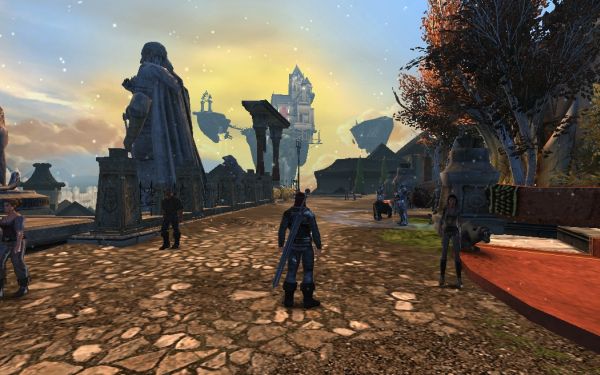
“The evidence will be stored in my digital camera forever.” If this is how you imagine Google, you may not have looked very closely.
For years now, Google has offered a wide range of services to the Internet users for free. They have been able to afford this because advertisers are willing to pay for small, unobtrusive ads associated with many Google services. These advertisements are supposed to be “targeted” so that the people who see them are the people more likely to respond to them.
This works well enough in the case of simple search. If you search for “credit cards”, there is a good chance that the major financing companies and you may have a common interest in the matter, for the time being. Of course, your interest in the matter could be entirely theoretical, but on a larger scale it makes sense to match up search results and advertisements like this.
If Google knows a little bit more about you, they can be even more useful. For instance if you search for “flowers”, your friendly neighborhood florist may want to provide their services, but this would require some knowledge of where you are. If Google is allowed to keep track of where you are – not necessarily to the square foot, but the square mile at least – they could let your local florist advertise rather than one in a different city.
Gmail, another free service from Google, is also financed this way. By showing ads related to the text in your mail, they get money from advertisers and you get a chance to buy something relevant, or at least become aware that it exists. This worries some people, who don’t like that robots are reading their mail. But there is no actual reading involved: The system simply responds mechanically to words in the mail. For instance, when I discussed the author Orson Scott Card with a friend, Gmail started showing ads for credit cards. Card=card!
For the most part, however, I find that the ads are utterly random. For instance, 99.9% of my mail is in English, but almost all the ads are in Norwegian. They seem to be based on the location of my Internet Service Provider and nothing more. I could of course be an exception; perhaps someone at Google has set some kind of flag at my account. But the opposite seems more likely: People see an ad that interests them and thinks it is tailor-made for them, but it is actually just made for ordinary people and they are ordinary people. This is known as the “Forer effect” or “subjective validation”, if you want to read up on it.
There is a certain sense of paranoia, or at least of reason for paranoia, when people speculate that Google will show ads for condoms on their mobile phone when they are on their way to a date. There is no reason to think we are getting anywhere close to that. I have been feeding Google all the information I reasonably could since I discovered them, surely enough to write a biography in several tomes (and a few novels perhaps) but there is no sign that they are using any of that. The location of my Internet Service Provider, my gender (possibly, although I think they default to male if you log on anonymously) and the occasional keyword in the text, but usually just the ISP, which they can extract automatically from my IP address.
Not to make light of the IP address. If they were to target their random customer in Norway with ads for things that can only be bought in America, or in China or India for that matter (far more populous nations than the USA), the ads would be wasted or have entertainment value at best. When showing ads for Norwegian companies, there is at least some theoretical chance that the ad may click. Although this has never happened in all these years. I have only responded positively to two ads, none of which were Norwegian, and only one led to a sale. For the most part the ads either pass by or evoke a mild response of disgust. But then I am not exactly normal. More about that all the time, I guess.
The conclusion so far is that the “targeted advertisements” from Google have a long, long way to go. You may have heard about the retail chain that started sending a young woman ads for baby stuff before she had told her parents that she was pregnant. The fact that I have only ever heard of this one story makes me wonder whether there is even a causal connection at all, or just incidental.
For instance: After buying wedding presents to two of my friends on Amazon, some months passed and I started getting hints about baby stuff from them. Which normally would have been a great idea, I suppose, if I intended to continue giving them gifts, and if they were normal. But even my friends tend to not be entirely normal, and so here too. The point is, if I were a woman and pregnant when the baby recommendations came in, I might have freaked out as well, even though the causal link was actually Not Like That.
As it is, Google at least is far, far, far away from the stalker fantasies of some of its detractors. It is so far away from stalking that it is just barely useful.









